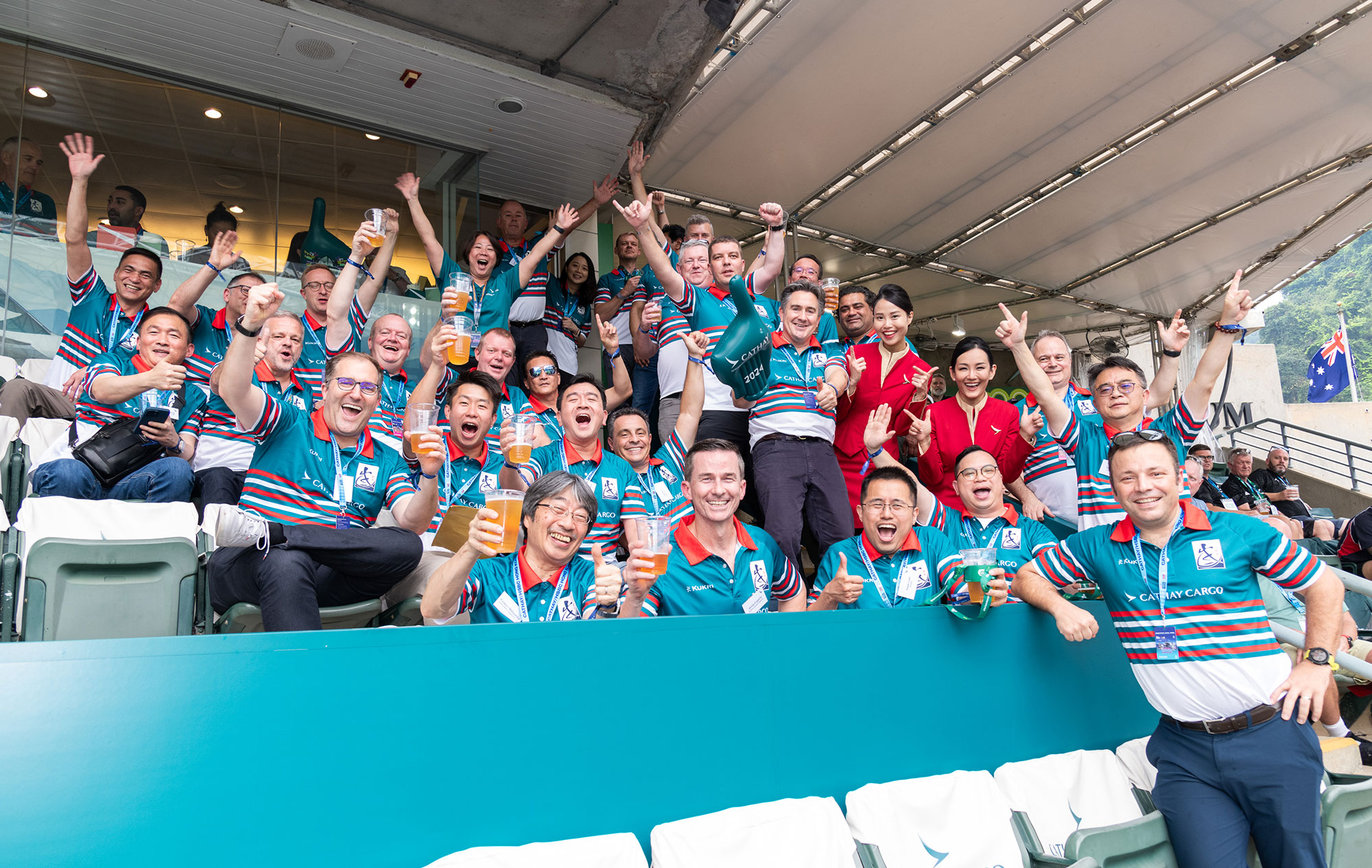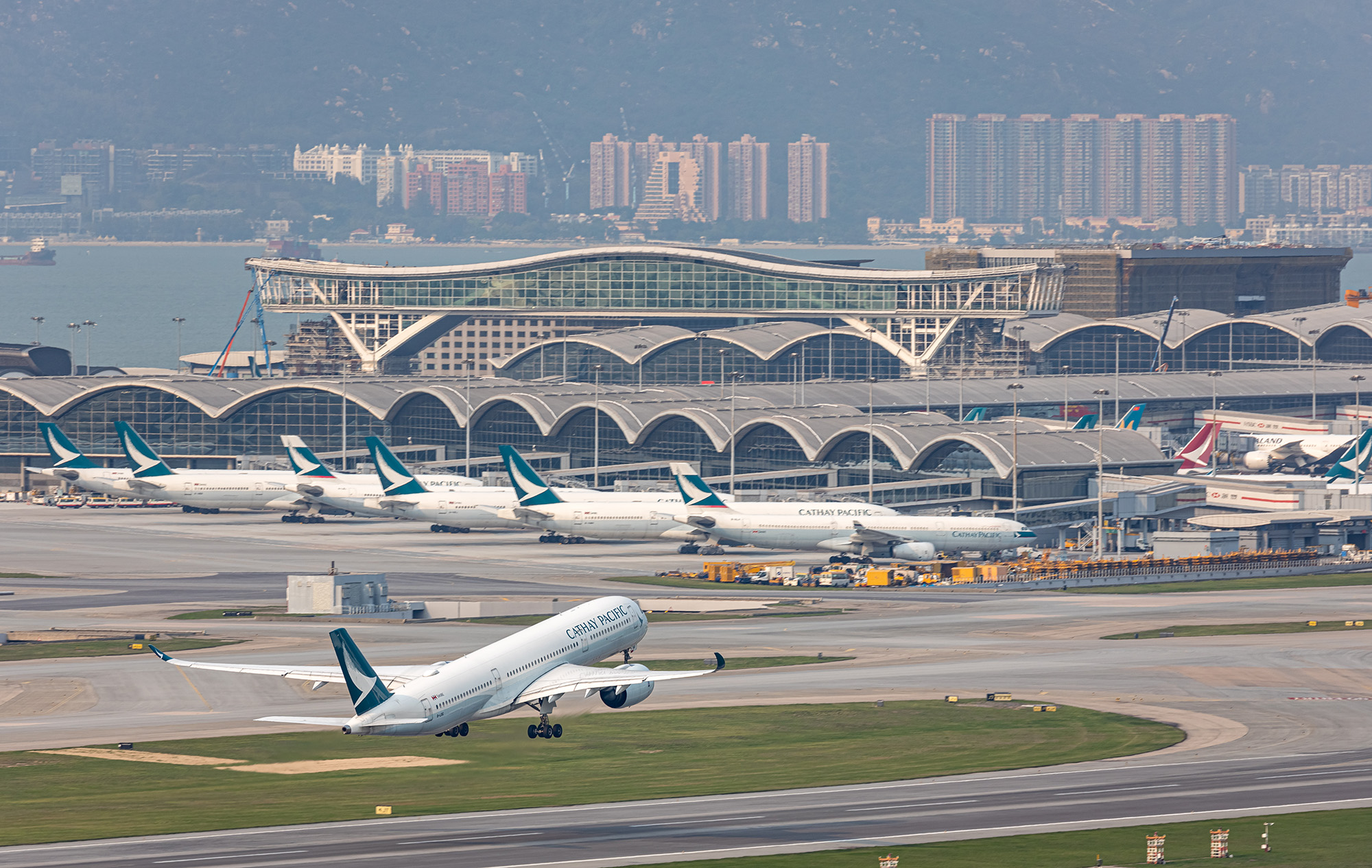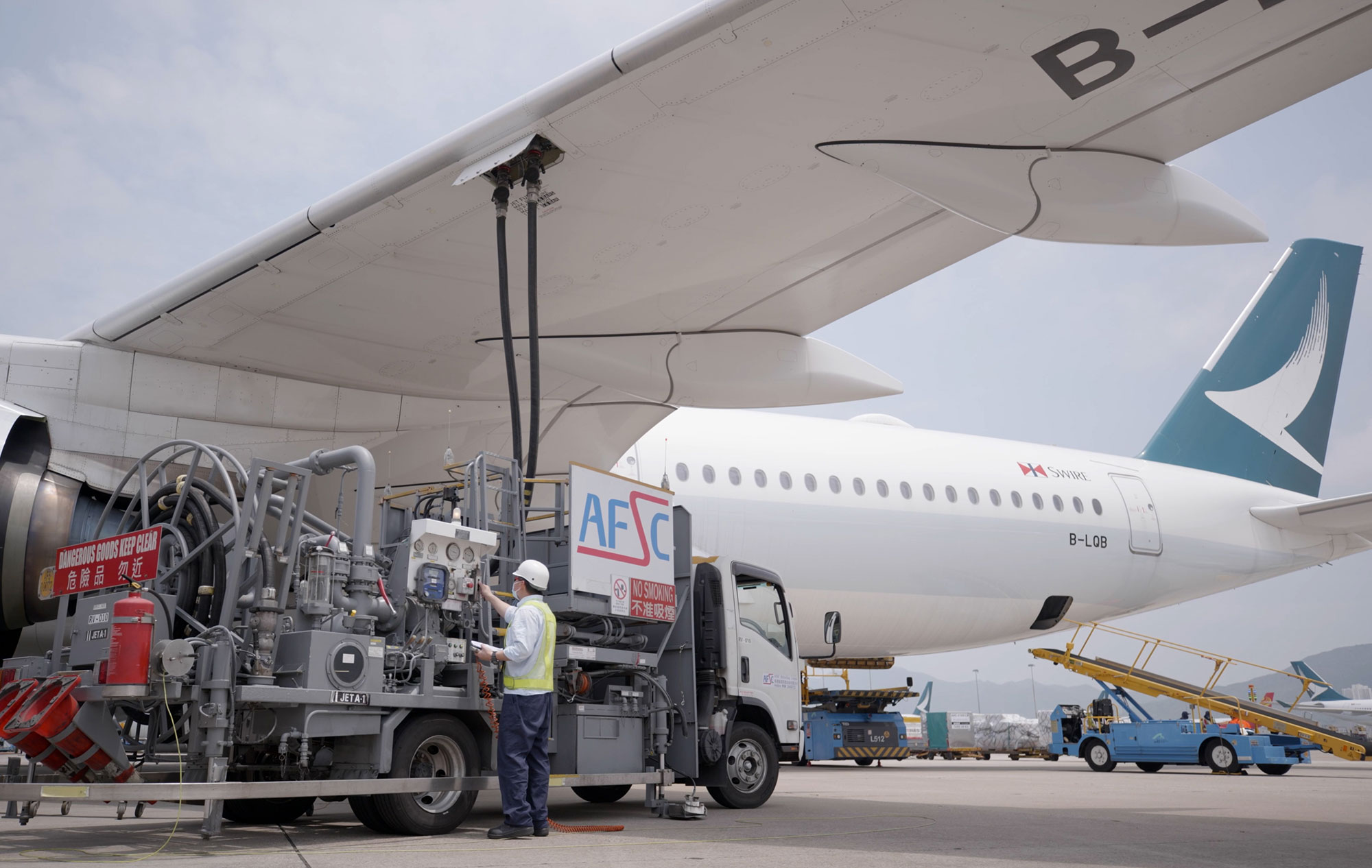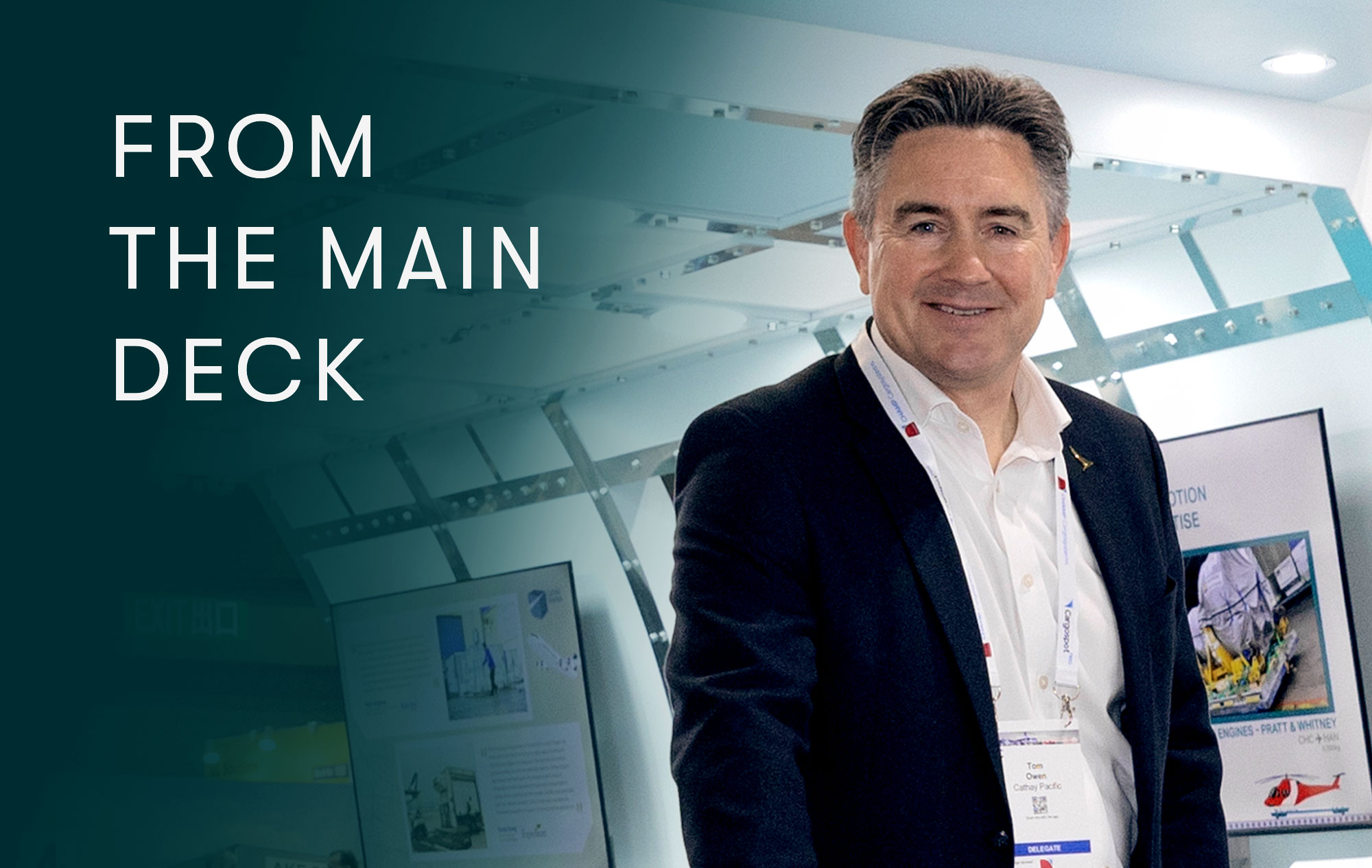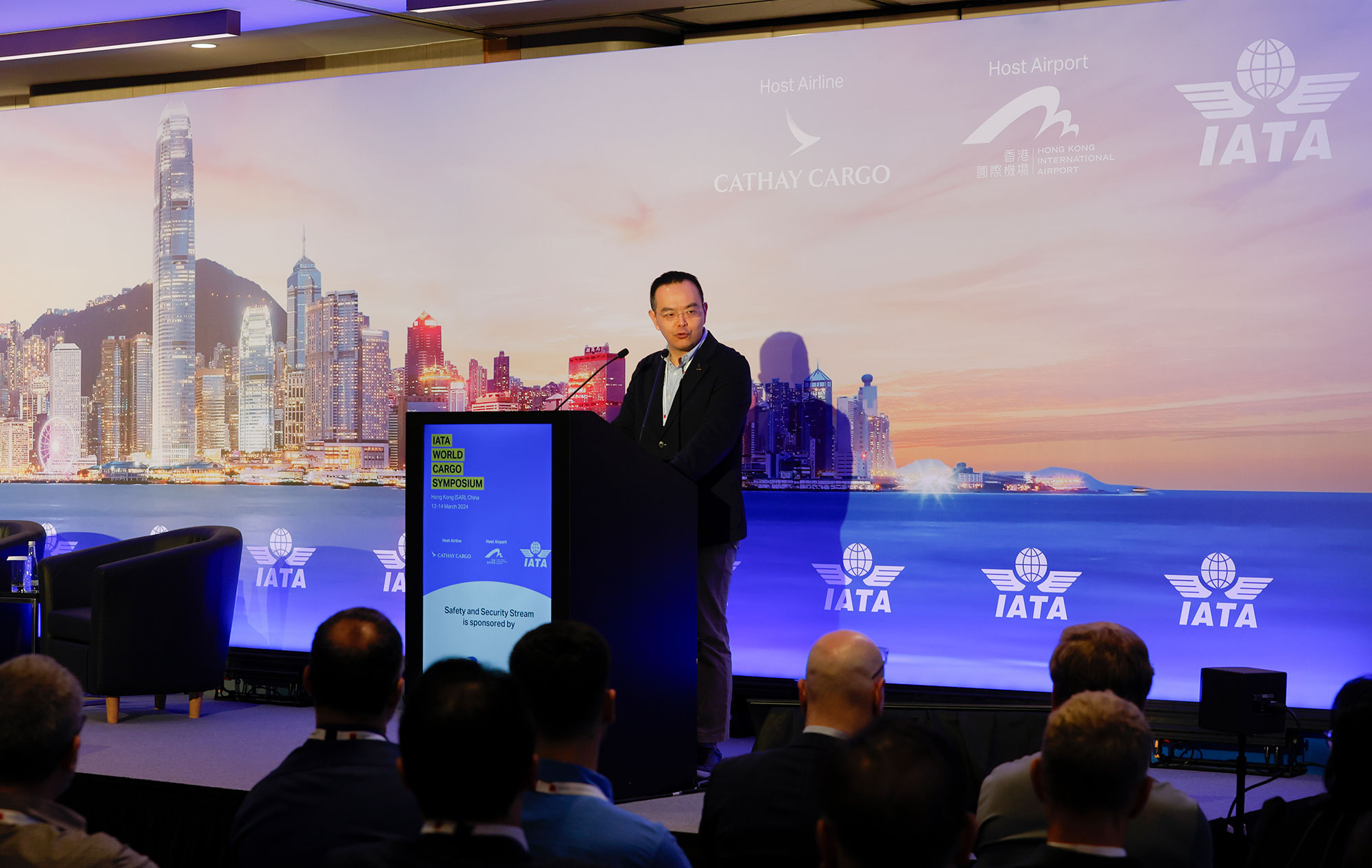George, tell us a little more about yourself.
George: I’m 39, from the UK and moved to Asia in 2005 when I joined the Swire Group. I started in the shipping division – the China Navigation Company, part of John Swire & Sons. I spent 11 years there in a variety of roles, latterly on vessel acquisition with a specific focus on building a fleet for a newly formed division, Swire Bulk. In 2016, I moved to Cathay Pacific, first as Country Manager in Indonesia. I then returned to Hong Kong a couple of years ago to become Head of Revenue Management Operations.
How will you draw on your past sea-freight experience in your new role?
George: The drivers are basically the same – the global economy, supply and demand, and changing procurement patterns. There’s always a tension between air and sea freight. Given the choice, people would move their goods by sea because costs can be managed better. Air freight comes into play for higher-value goods needed sooner, for just-in-time manufacturing, or if the supply chain is put out of kilter, which we’ve seen recently with PPE (personal protection equipment) shipments.
How does your revenue management experience factor into the job?
George: The shared aim of the passenger and cargo divisions of our business is to maximise revenue for the capacity you’re operating. On the passenger side, the scale and number of sales and transactions means distribution channels are bigger and there are more of them, especially with the growth of online travel booking. Cargo is quite behind in some respects, but as e-commerce grows and freight forwarders start to offer better services for online bookings, we’re moving from an email and telephone service to a digital-first service.
Is that part of the vision for the business?
George: Yes, our offerings should be as good as anything offered by the market. While you might expect there to be tension between maximising revenue and meeting customer needs, what I have seen is that if you have the right interaction and meet real customer needs, it’s possible to achieve both. One of our long-term objectives is ‘innovation’, led by digitisation. With the growth of e-commerce, we have to ensure that we’re on top of this. Digitisation will enable us to understand our customers better and to offer higher-touch service, but also to check our own consistency and quality. It’s giving customers the channels to access us in the way they want, and for us to have more informed conversations with them using data. For example, our sales teams will have a better understanding of the commercial and operational picture in a customer relationship.
There will once more be a Director Cargo – will that influence your role?
George: It’s a positive move and reflects the importance of cargo to Cathay Pacific. In ordinary times, cargo generates 25 to 30 per cent of Cathay’s revenues. Having a cargo representative on the executive team is useful, and the best way to maximise revenues is to ensure that the commercial side is operating in harmony – not just with the operational side, but all the other parts of the business.
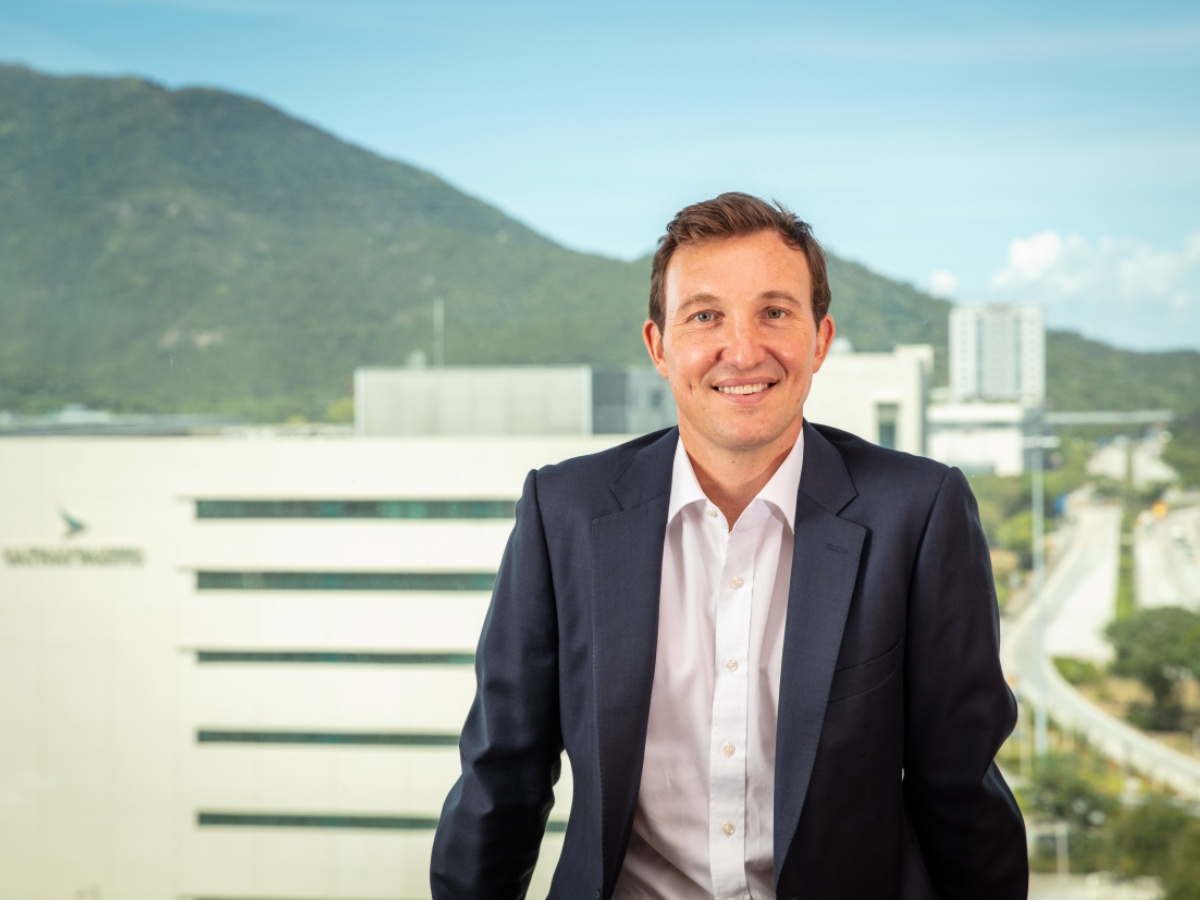
What are the challenges and opportunities for the cargo business?
George: It’s very hard to look beyond COVID-19. While there have been opportunities with the gap between capacity and demand, it has also presented challenges, and it’s hard to see how this will play out over the next 12 to 18 months. So much cargo is carried in passenger bellies, and that will remain constrained. But we don’t think global trade will contract as much as our capacity, so the challenge is to ensure the integrity of our market-leading network and maximise this short-term opportunity, while maintaining relationships with our customers, which will stand us in good stead in the long-term.
What do you like to do outside work?
George: I have three kids aged 10, eight and five, and they keep me busy – and probably busier than ever now they don’t have the outlet of school. Trying to keep three energetic children busy so that they’re tired at the end of the day is our focus this year. Hong Kong, up until the recent restrictions, is good in that you can get outside and run around on the beaches or go on hikes to find waterfalls to jump in.
Nelson, you are moving on again – tell us about your new role.
Nelson: I’ll be heading to Japan, to look after South Korea, Japan and Taiwan as Regional General Manager North East Asia. I’ll be representing Cathay Pacific’s interests there across the board – operations, services and commercial. It will be something different and an opportunity to get more involved with the broad spectrum of our business. I certainly look forward to even more customer engagement.
Will you still be involved in cargo in some capacity?
Nelson: Cargo will remain close to my heart. We have a service-oriented team, and decent market presence with a good blend of destinations, frequency and fleet mix. I look forward to furthering our continuous efforts to improve our value proposition to our customers and partners.
What is the achievement you will look back on with the most pride?
Nelson: The achievement made by the whole team to become even more customer-centric, actively engaging with our customers to listen to their needs and persevere to provide fitting solutions. It has certainly been a bit of a roller-coaster ride. I feel our bond with our partner customers is that much stronger, from the peaks in 2017-18 to the dip in 2019 and where we are now, where I hold a lot of pride in the joint efforts to bring life-saving goods to where they are needed around the world. Commercial returns are a key part of my role, but being able to make a small difference to social wellbeing gives me a lot of joy and fuels my energy to do that much more.
What is the biggest lesson you have learned in your time at Cathay Pacific Cargo?
Nelson: The timeliness of business and appreciation that it takes all the stakeholders in the supply chain to work together to ensure the success of the airfreight industry. I’m most excited about what digitalisation will bring our industry in the foreseeable future.
What will you miss most?
Nelson: The pace of the air freight business and the energy of the people, whether it’s within my own team or with our customers, whom I really do feel are our partners. That is something I will really miss.
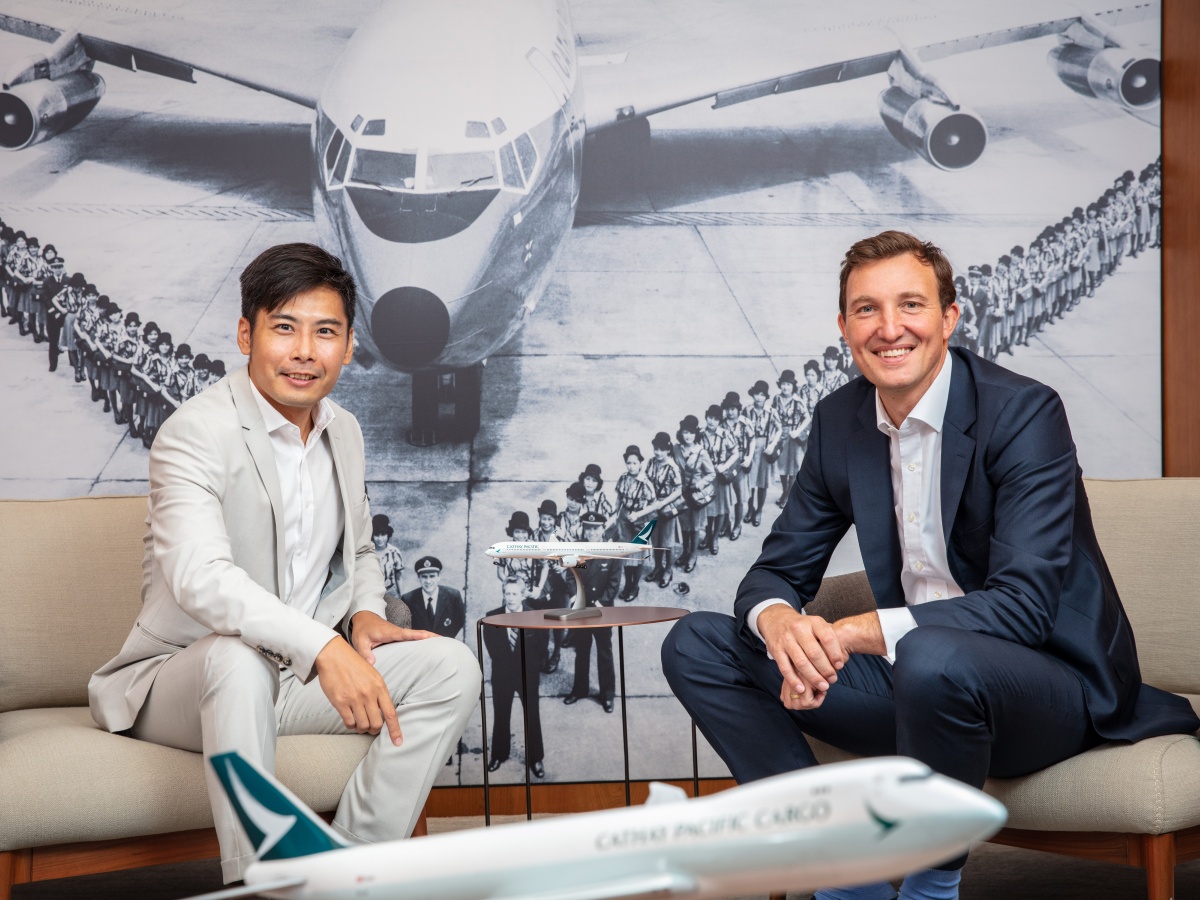
If you had one piece of advice for George, what would it be?
Nelson: I’m sure I don’t need to give advice to George, and he’ll know this, but the crux of the air freight business is people. So it’s important to listen your customers, to really understand what they want, and in turn they will listen back. While the pressures of capacity in the past few months have led to some difficult calls, if you explain those in the right way you’ll be able to maintain those longer-term relationships and forge deeper ones.




